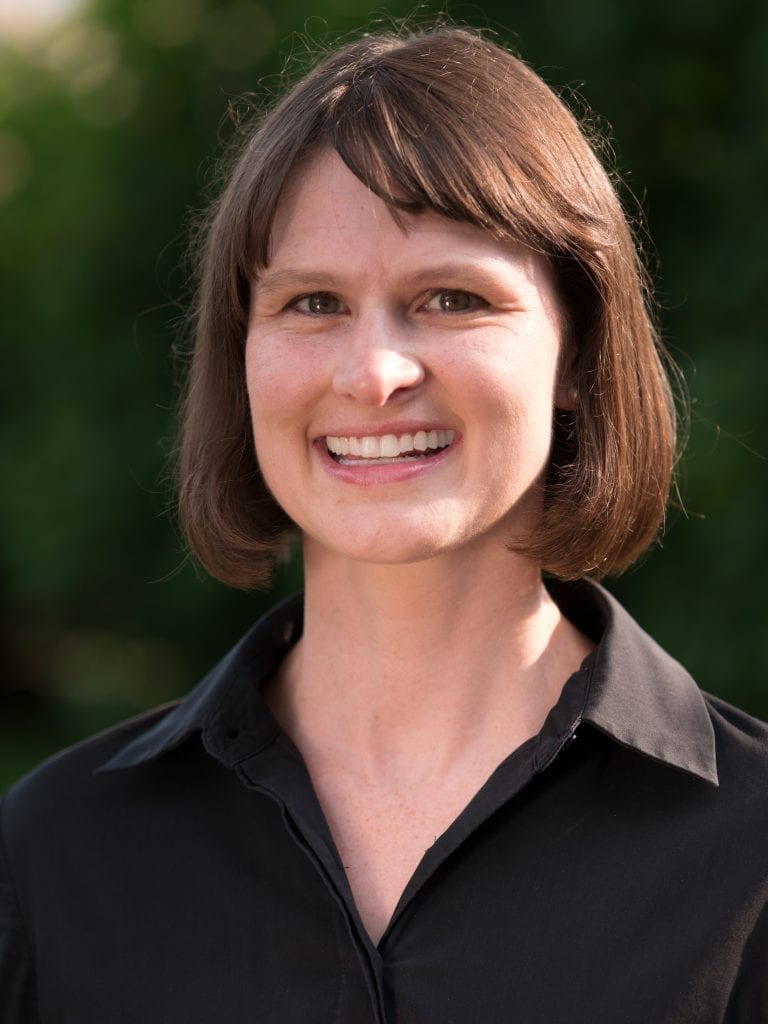Full story: https://www.localdvm.com/news/virginia/jennifer-bush-lawson-foundation-awards-childrens-national-25k/
Tag Archives: perinatal
5 Questions with: Emily Hershenson

This post is part of a series where we pose five questions on issues related to maternal and infant care for vulnerable populations to health professionals, community advocates, mothers and other important voices. Emily Hershenson, an independently licensed clinical social worker who is in private practice as a psychotherapist in Dupont Circle in Washington, DC, shares thoughts on maternal mental health.
1. How did you join the health care field and what inspired you to focus on mental health and psychoanalysis?
I went to graduate school for social work after forays into two very different fields: politics and the performing arts. I loved working in both, but I knew I wanted to go to social work school and specifically become a psychotherapist because of my own life experiences. I think there are usually personal reasons we choose the work we do; that certainly is the case for me. But psychotherapy is such a hopeful endeavor. The therapist and patient work together to gain a greater understanding of the patient’s life with the goal of relieving suffering and making life ultimately more meaningful. It can be so transformative. It’s a privilege to do the work I do.
2. What do you think are the major maternal mental health concerns that are affecting women of color and low-income women?
I think the biggest maternal mental health concern can be summed up with one phrase: access to care. As an example, there’s a higher incidence of Postpartum Depression (PPD) among low-income and minority women. Often, it’s not even diagnosed among these women. If it is correctly diagnosed, a realistic treatment plan cannot often be implemented. Why? Because of access to care. If you’ve got two kids at home already, a newborn and you’ve been diagnosed with PPD, when are you going to see a psychotherapist weekly? Who is going to watch your kids? How are you going to get to the therapist’s office? How are you going to pay your co-pay? (Or, a more accurate question: how can you find a therapist with availability who also accepts your insurance?)
Further complicating the situation are language and cultural barriers to care. In many communities, mothers feel ostracized if they’re having a tough time after the baby arrives. Regrettably, there is still such stigma around mental health challenges, especially for new mothers. Many moms who would benefit from PPD treatment don’t even know there is help out there. They may not even have a name for what they’re experiencing.
3. What are some possible solutions that can help resolve these issues?
There are no easy solutions, of course. I think JB-LF is doing great work. It’s going be the efforts of organizations that are going to make a difference–whether through direct funding, community partnerships, or campaigns raising awareness about the issues. I think the more maternal mental health is discussed openly, the less shame moms will feel in reaching out for help.
I had very difficult postpartum experiences after each of my children was born. It was hard, but I was relieved when I met other moms who had similarly tough times. I was lucky. I had the resources and fantastic support to get the help I needed. I think if more people are willing to open up and share their stories, it can be powerful and de-stigmatizing.
4. What are some ways that women can handle or deal with postpartum depression at home?
If you suspect you have PPD or are experiencing any changes in your mood, talk to your doctor or RN right away. Ask for their help in getting help. It can be too overwhelming to have to coordinate treatment on your own. If you can, go walk with your baby in a carrier or a stroller; breathe some fresh air. Eat well. Snack on peanut butter, cheese, apple slices. Drink lots of water. Keep in contact with friends and family. Don’t isolate yourself. Remember that you’re not alone.
5. What are some resources, outside of hospitals, that low-income women can utilize that can provide support?
Often times, health care providers tell moms that they’re not alone and that the mental health challenges they are facing are not their fault and that, with help, they can be well again. This may seem like an empty sentiment if you’re someone without access to resources.
Everyone should know about Postpartum Support International. It’s a very important resource for postpartum mothers and their families: https://www.postpartum.net/. The organization is dedicated to helping women suffering from perinatal mood and anxiety disorders (PPD is the most common one) and they offer reliable support and information for moms and families (and professionals too). They have a help line–which is not a crisis line–as well: 1-800-944-4473. On their website, you can find everything from online support meetings and local resources. Every new mom should visit their website at least once. They are doing important work.
D.C. Finally Establishes a Committee to Address Maternal Deaths (Washington City Paper)
Washington City Paper reporter Kayla Randall’s latest piece on DC’s newly formed maternal mortality task force shares follow-up on the conversations and connections made at JB-LF’s Feb. 13 event on maternal mortality, co-hosted by Huge Inc. and Duke in DC, including this one:
“At a panel on maternal health this February, [Dorie] Nolt stood up and told her story as a diverse room full of women thanked her for sharing it. A staffer at Councilmember Allen’s office was present at the panel, and approached Nolt about possibly serving as a lived-experience committee member. But she says the mayor’s office told her that she didn’t fit the description in the legislation because she hadn’t lost a loved one to maternal mortality.”
Read the full article, and watch Dorie sharing her story at our event here:
